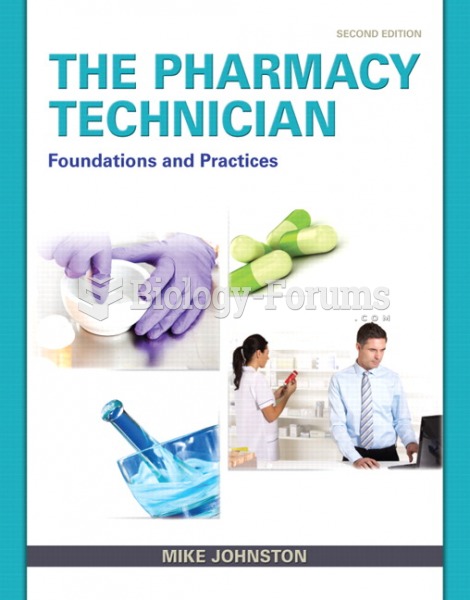This topic contains a solution. Click here to go to the answer
|
|
|
Did you know?
Opium has influenced much of the world's most popular literature. The following authors were all opium users, of varying degrees: Lewis Carroll, Charles, Dickens, Arthur Conan Doyle, and Oscar Wilde.
Did you know?
Cytomegalovirus affects nearly the same amount of newborns every year as Down syndrome.
Did you know?
The word drug comes from the Dutch word droog (meaning "dry"). For centuries, most drugs came from dried plants, hence the name.
Did you know?
Illicit drug use costs the United States approximately $181 billion every year.
Did you know?
Malaria mortality rates are falling. Increased malaria prevention and control measures have greatly improved these rates. Since 2000, malaria mortality rates have fallen globally by 60% among all age groups, and by 65% among children under age 5.
 An emergency medical technician positions defibrillator paddles on the chest of a supine male patien
An emergency medical technician positions defibrillator paddles on the chest of a supine male patien
 As in this photo from Tampa, Florida, hidden cameras now follow us almost everywhere we go. How do ...
As in this photo from Tampa, Florida, hidden cameras now follow us almost everywhere we go. How do ...





